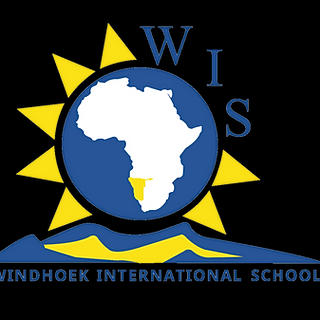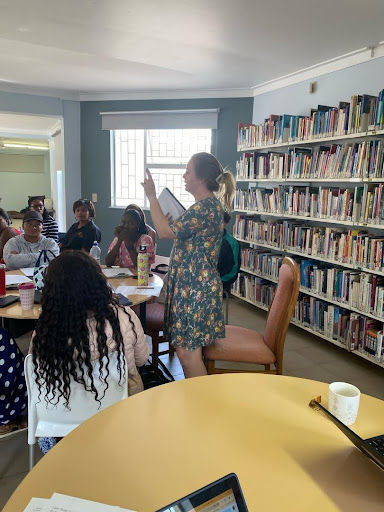Gr. 11 Group 4 Project on Regenerative Solutions for a more Sustainable World
- Windhoek International School
- Jun 9, 2023
- 4 min read
Dear WIS Community,
For two whole days on Monday 5th and Tuesday 6th of June, the science rooms on the WIS campus were a buzz of excitement and energy. Grade 11s were working on their Diploma Programme Group 4 Project.
According to the International Baccalaureate:
“The group 4 project is an interdisciplinary activity in which all Diploma Programme science students must participate. The intention is that students from the different group 4 subjects analyse a common topic or problem. The exercise should be a collaborative experience where the emphasis is on the processes involved in, rather than the products of, such an activity.”
This year the collaborative experience was centred around an inspiring video that can be streamed from the following link: https://grow.foodrevolution.org/
In the video, students were introduced to the Green Powerhouse, an innovation that combines the collective climate-saving potential of biochar and green algae with clean energy generation and heat recycling. This was a perfect example of the three sciences of chemistry, biology and physics working together in an interdisciplinary manner to address the crucial issues of agricultural degradation (which threatens food security), global warming and energy supply. We also wove in themes from DP Geography and Theory of Knowledge.
Each of the Grade 11 students was allocated to a team of 4, balanced for the sciences that they are studying in their Diploma programme. Each team was assigned 3 tasks - i) to present the themes in the video; ii) to create an artistic piece that commented on the need to think about problems in a manner that was more in line with the way that nature works (ie with a more circular mindset that a linear one); iii) to design a Rube Goldberg machine.
In the middle of the experience two of our inspiring cohort, Aqeela Nel and Zahra Ayoub, took time out of the project to interview Kate Raworth an economist and writer of “Donut Economics - 7 ways to think like a 21st Century Economist” https://www.kateraworth.com/ (which must be a good book because it is on Mark McLennan’s summer reading list!). The interview will be broadcast as part of the International Baccalaureate’s Festival of Hope series https://www.ibo.org/festival-of-hope/. Once it is published we will certainly share the link because the feedback from both Kate and the organisers was that these were some special students and that they were great ambassadors for the school. So thank you to these wonderful young women for putting us on the international map!
In totality, the entire Group 4 Project experience was one of collaboration, discovery and hilarity which was well received by students (every one of them voted the experience at minimum 7 out of 10! For several it was perfect!).
I think instead of writing more I will hand it over to them and their comments as they seem to capture the experience in the best way:
“I've definitely learnt something new. My interest in positive environmental change has increased, and I have acquired a newfound love for Biochar!”
“I have a newfound love for algae and its many forms. I understand the impact of the linear cycle, and what moving to an ecological cycle would mean.”
“I knew soil was important but I didn't know it was THAT important. I didn't realize the impact we had on the soil.”
“I feel better educated and inspired. I also realised how the media had negatively fed my thoughts and subconsciously discouraged me from wanting to do something about our current environment. Our tomorrow isn't entirely doomed and I do feel inclined to play my part.”
“I would like to use biochar to restore my dead garden at home, the soil there is currently lifeless and I would like to see it come back to life so that I can grow my own vegetables.”
“I got a pretty hard reality check, I never paid much attention to where my old clothes or other things went and how it affected the environment. Now I've learnt to think twice before carelessly throwing something away that could have been recycled.”
“It (all 3 tasks) seemed overwhelming, however, once we got on with the tasks we realised it is manageable. Fun tasks also helped with the completion of the G4 project.”
“The project as a whole definitely allowed us to work together because my group wasn’t a group I would’ve previously thought to have enjoyed. But we used our skills and worked together quite nicely”
“It was not the easiest task but my team did our true best to work productively, listen to one another and be proactive. Not all of us are friends but we did our best to share respect and good energy.”
“I haven't worked with these people before on a scale like this. So to a certain extent, it has helped us gel better.”
“There were times when we clashed, but overall we worked well together, and I'm super proud of the result.”
“We built good connections as we developed our projects”
“We had a lot of fun working together and building the machine. We also brushed up on our teamwork skills.”
Many thanks to the teachers that supported the event Mr. Jacob Oluwasanmi, Ms. Rose Githinji and Ms. Edwina Rimmington.

Adrian von Wrede-Jervis
Academic Head of Models and Systems & MYP Coordinator
















Comments